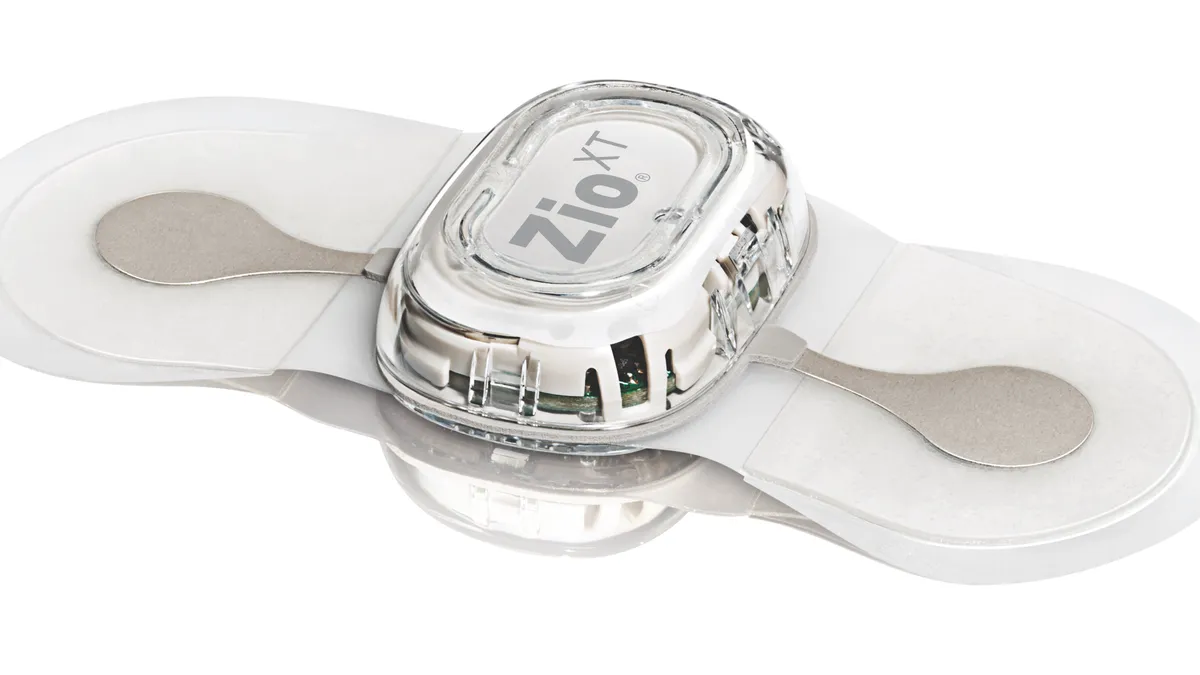Dive Brief:
- iRhythm Technologies presented an analysis of Medicare claims data showing its Zio XT outperforms other ambulatory cardiac monitors, boosting the company’s bid to win market share.
- The U.S. market is less than 30% penetrated, according to analysts at William Blair. Supported by evidence such as the Medicare data, the analysts expect Zio XT and other long-term cardiac monitors (LTCM) to ultimately capture most of the ambulatory cardiac monitor market.
- iRhythm is looking to its next-generation Zio monitor to drive the transition. In a second study presented at the American College of Cardiology (ACC) Conference, the company showed its new device achieved a higher arrhythmia yield than its predecessor.
Dive Insight:
Physicians have multiple options for monitoring cardiac rhythm. iRhythm claims its single use wearable Zio monitors are more accurate and lower the cost of care, but many physicians continue to prescribe Holter, mobile cardiac telemetry and ambulatory event monitor devices, as well as rival LTCMs.
To compare the effectiveness of the different options, researchers analyzed data on almost 288,000 Medicare fee-for-service patients who received an ambulatory cardiac monitors for the first time in 2017 and 2018. Most, 54%, of the patients received Holter devices. LCTMs accounted for 13% of the dataset. Users of Zio XT had a higher diagnostic yield than and lower 180-day retest rate than other devices, including rival LTCMs.
“The data supports our belief that LTCM will make up the majority of the ACM market over time,” analysts at William Blair wrote in a note to investors. “With the market less than 30% penetrated domestically, we believe this data should help drive further awareness and adoption not just in the United States, but globally over time.”
Other LTCMs were 20% less likely to detect a specified arrhythmia and 3.51 times more likely to require a retest within 180 days. Zio lists Philips’ BioTelemetry, Boston Scientific’s Preventice Solutions and Baxter’s Bardy Diagnostics as the competitors to its Zio services.
The authors of the analysis included iRhythm consultants and employees.
iRhythm also used the ACC event to promote data on its next-generation device. The device, which is smaller and lighter than its predecessor, received clearance from the U.S. Food and Drug Administration in 2021 but is still in a limited launch. Ahead of the full launch later this year, iRhythm linked the device to a higher arrhythmia yield than Zio XT. The device beat its predecessor by 80.9% to 77.1%.











